A study conducted by the Enderun Research Department showcased the growing trends in Filipino internet user behaviors, including a growing consciousness and valuation of data privacy. These trends were based on survey responses from attendees of the Data Privacy Summit last August 24, 2018.
Internet usage in the Philippines is growing year in and year out. Survey data from the National Privacy Commission in 2017 showed that Filipino adult internet usage reached 37 percent that year. That translated to roughly 37 million Filipino adults online at any given point, 18 million of which use the Internet at least one hour each day for various purposes.
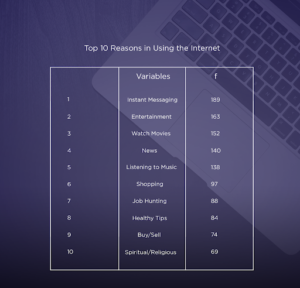
Instant messaging, such as Facebook, Viber, and the like, is the top reason for using the Internet according to survey respondents. This is followed closely by entertainment, watching movies, and getting news online.
Click here to view the full study from the Enderun Research Department.
Where Filipinos Go When Online
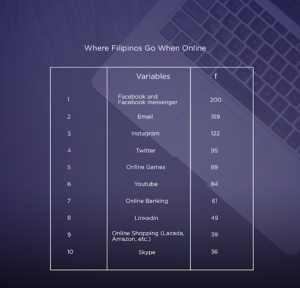
It should come as no surprise that social media platforms occupy 50% of the list of most used applications, seeing as the Philippines has been labeled the Social Media Capital of the World. Surprisingly, online gaming beat out applications like YouTube, Online Banking, and Online Shopping.
What Filipinos Share Online
Given how often Filipinos use social media, conference attendees were also surveyed about the information that they share online:
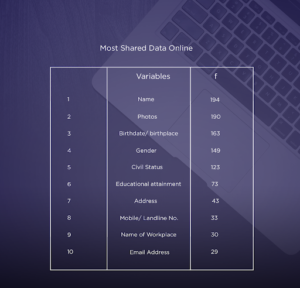
Surprisingly, a significant number of respondents shared their personal information online. These include their name, birthdate, address, mobile phone number, and email address. Considering how Filipinos are becoming more and more aware of their Data Privacy right, these results are shocking since such information being freely provided online leaves them susceptible to data privacy issues and cyberthreats.
Data Privacy and Cyberthreats
In a nationwide survey last June 2017, the Social Weather Stations (SWS) showed that 94% of Filipino adults wanted to know more about how personal data provided during transactions were being used. On the other hand, 85% of Filipino adults agreed that the rights of data subjects were important.
In light of this, survey respondents were asked about their online behaviors to see if their actual behaviors were in line with the results from the SWS.
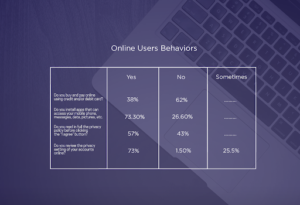
73% of respondents say that they have installed apps that they have given permission to access their mobile devices, messages, data, photos, etc. What is startling is that nearly half (43%) of them also claimed that they did not read the app’s privacy policy in full before clicking the “I Agree” button. This is a significant risk to their data privacy, especially given how modern mobile devices tend to store extremely sensitive personal data, such as their names, contact details, passwords, credit card numbers, etc.
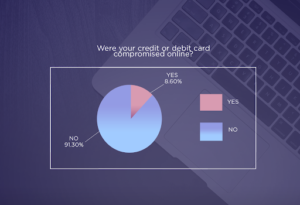
Thankfully, an overwhelming majority of respondents have not had to experience their credit or debit cards being compromised. However, 8.6% of them have experienced compromised credit or debit cards. This may have been influenced by the user behavior surrounding credit cards for online purchases. Though it may only be speculation at this point, there is a real risk of an increase in compromised credit or debit cards as online payments become more accepted by Filipino adults.
Looking toward the future
The Philippines is home to one of the strictest Data Privacy laws in the world, which were made to protect everyday consumers and internet users. However, even the strictest laws cannot prevent users from inadvertently placing themself at risk based on their online behaviors. As such, companies should look at other ways to ensure the privacy and security of their customers’ data. On the other hand, joint ventures by the public and private sectors should be made to inform the general public of their data privacy rights, as well as how Filipino adults can protect their data online.
Click here to view the full study from the Enderun Research Department.

